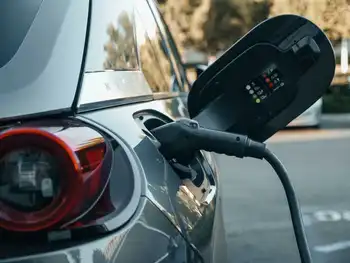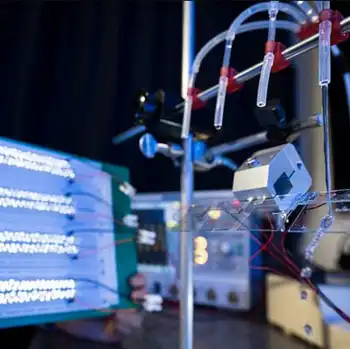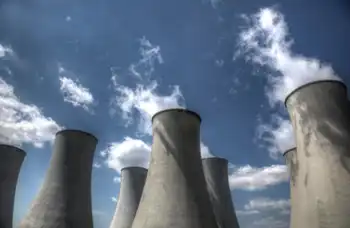Automaker EV Fast-Charging Network will deploy 30,000 DC fast chargers across US and Canada, supporting CCS and NACS, integrating Tesla compatibility, easing range anxiety, and expanding highway and urban charging infrastructure with amenities and uptime.
Key Points
A $1B joint venture by seven automakers to build 30,000 DC fast chargers with CCS and NACS across the US and Canada.
✅ 30,000 DC fast chargers by 2030 across US and Canada
✅ Supports CCS and NACS; Tesla compatibility planned
✅ Launching mid-2024; focus on highways, urban hubs, amenities
Seven major automakers announced a plan on Wednesday to nearly double the number of fast chargers in the United States in an effort to address one of the main reasons that people hesitate to buy electric cars, even as the age of electric cars accelerates.
The carmakers — BMW Group, General Motors, Honda, Hyundai, Kia, Mercedes-Benz Group and Stellantis — will initially invest at least $1 billion in a joint venture that will build 30,000 charging ports on major highways and other locations in the United States and Canada.
The United States and Canada have about 36,000 fast chargers — those that can replenish a drained battery in 30 minutes or less. In some sparsely populated areas, such chargers can be hundreds of miles apart. Surveys show that fear about not being able to find a charger during longer journeys is a major reason that some car buyers are reluctant to buy electric vehicles.
Sales of electric vehicles have risen quickly in the United States as the market hits an inflection point, but there are signs that demand is softening. As a result, Tesla, Ford and other carmakers have cut prices in recent months and are offering incentives. Popular models that had long waiting lists last year are now available in a few days or weeks.
Major carmakers are investing billions of dollars to manufacture electric vehicles and batteries and to establish supplier networks. Having staked their futures on the technology, they have a strong incentive to ensure that electric vehicles catch on with car buyers, even as gas-electric hybrids help bridge the transition.
The chargers installed by the joint venture will have plugs designed for the connections used by most carmakers other than Tesla, as well as the standard developed by Tesla, amid fights for control over charging, that Ford, G.M. and other companies have said they intend to switch to in 2025.
“The better experience people have, the faster E.V. adoption will grow,” Mary T. Barra, the chief executive of General Motors, said in a statement.
The seven automakers plan to formalize the joint venture and announce its name by the end of the year, Chris Martin, a Honda spokesman, said. The first chargers will begin operating around the middle of 2024, he said, with all 30,000 in place by the end of the decade.
The joint venture is open to adding other partners, he said. Among major automakers, Ford was a notable absence from the announcement on Wednesday. The company said in a statement on Wednesday that it would continue to iThe partnership also does not include Volkswagen. The company is a majority shareholder of Electrify America, one of the largest fast-charging providers.
Tesla accounts for more than half the fast chargers in the United States and has said it will open its networks to other car brands, though, so far, it has only made fewer than 100 ports available. Owners of Ford and G.M. vehicles, among others, will be able to connect to 12,000 Tesla fast chargers using an adapter beginning next year. In 2025, Ford and G.M. plan to make models designed to take the Tesla plug without an adapter.
The decision by the seven carmakers to form the joint venture is an indication that they do not intend to rely solely on Tesla, which dominates sales of electric vehicles, for charging.
The chargers being built by the joint venture will be concentrated in urban areas and along major highways, especially those used most heavily by vacationers and other travelers, the companies said in a joint statement. Charging stations will be close to restrooms, restaurants and other amenities. The partners said they would try to take advantage of federal and state funds available for charging infrastructure amid questions about whether the U.S. has the power to charge it at scale.
Most electric vehicle owners charge at home and rarely need to use public chargers. Home chargers typically replenish batteries overnight. Most public chargers, about 125,000 in the United States and Canada, also operate relatively slowly — taking four to 10 hours to do the job.nvest in its own network, which allows Ford owners to charge from a variety of providers with one mobile phone app.
Related News












